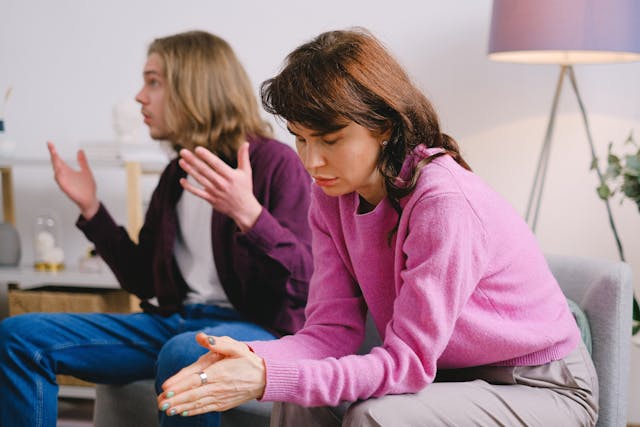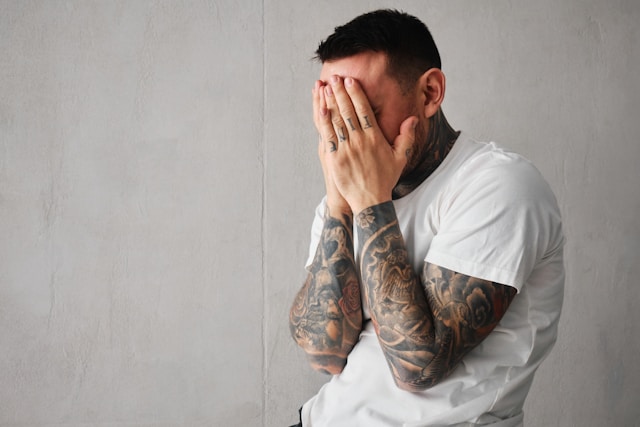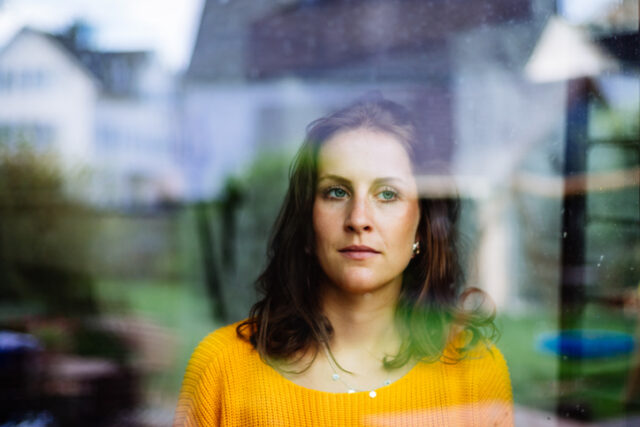When you’re used to being disappointed or let down in life, it’s natural to start assuming everyone and everything will do the same in the future.

Of course, this is a really cynical way of looking at the world. Just because you’ve come across some bad people or had some less than stellar luck in the past doesn’t mean you’re doomed to the same forever. Assuming the worst might feel like the only way to protect yourself from inevitable hurt and upset, but in reality, it just makes you miserable and keeps you from enjoying the good stuff in life. Here’s why it’s time to change your jaded outlook, as well as a few tips on how to do so.
1. It makes you more anxious than prepared.

While it might seem like assuming the worst helps you prepare for the tough stuff in life, it usually just furthers your anxiety. Instead of calmly planning for potential outcomes, you end up catastrophising. Try changing your focus to what could go right — it’s a much more balanced way to prepare for the unknown.
2. It creates tension in your relationships.

Assuming the worst often leads to misreading situations with friends, family, or partners. You might jump to conclusions about their intentions or assume they’re upset with you when they’re not. Clear communication can help, so ask questions instead of making assumptions.
3. You miss out on positive experiences.

Always expecting the worst can make you overly cautious, causing you to avoid opportunities or events that could be wonderful. The fear of “what if” might hold you back from stepping into something truly rewarding. Practise saying yes to things without overthinking every possible downside. It might take a while, but eventually, it’ll start to take root.
4. It reinforces a negative mindset.

The more you assume the worst, the more you train your brain to focus on negativity. This creates a loop where expecting bad outcomes feels natural. Try countering each negative thought with a positive or neutral possibility — it helps retrain your perspective over time.
5. You may alienate the people around you.

People can sense when you’re always bracing for disappointment or drama. It can make interactions feel heavy or exhausting for them. Instead, focus on creating lighter, more optimistic energy in your conversations — it draws people closer instead of pushing them away.
6. It robs you of your peace of mind.

Constantly expecting bad outcomes keeps your mind in a state of alertness, which can be exhausting. Instead of assuming disaster, try practising mindfulness or gratitude to help ground you in the present moment. It’s hard to panic when you’re focused on what’s going well right now.
7. You’re less likely to take healthy risks.

Assuming the worst can make even minor risks feel overwhelming, stopping you from pursuing things that could improve your life. Whether it’s applying for a job or starting a new hobby, remind yourself that not all risks end in failure. After all, many lead to growth.
8. It damages your self-confidence.

Believing the worst often extends to how you view yourself, leaving you doubting your abilities or worth. Over time, this negative self-talk eats away at your confidence. Start recognising your strengths and achievements to rebuild your self-belief.
9. It keeps you from trusting anyone.

Assuming the worst about people’s intentions can make it hard to build trust. You might interpret neutral actions as betrayals or distance yourself unnecessarily. Try giving people the benefit of the doubt. If they don’t give you a reason to be sceptical of them and their intentions, don’t be. It’s a step toward healthier, more trusting relationships.
10. It turns small issues into big problems.

When you always expect the worst, even minor inconveniences can feel like major disasters. The tendency to catastrophise creates more stress than the situation warrants. Pause and ask yourself, “What’s the worst that could realistically happen?” to keep things in perspective.
11. You overlook the good in people and situations.

Focusing on potential negatives means you often miss the positives right in front of you. Whether it’s someone’s kind gesture or a beautiful moment, assuming the worst blinds you to these small but important joys. Challenge yourself to notice one good thing each day. It can change your outlook quickly.
12. It drains your energy.

Constantly bracing for imaginary disasters is exhausting. You’re essentially living through stress that hasn’t even happened yet. By letting go of these imagined scenarios, you free up mental and emotional energy for the things that truly matter. You’ll be shocked at how much lighter you feel.
13. It can cause unnecessary drama.

When you assume the worst, you might react defensively or aggressively in situations where it’s not warranted, which can escalate conflicts that could have been avoided. Take a deep breath before reacting, and consider alternative explanations for the other person’s behaviour.
14. You lose the ability to enjoy the present.

Dwelling on worst-case scenarios keeps your mind in the future, robbing you of the joy and calmness of the moment. Focus on what’s happening right now rather than worrying about what might go wrong later. It won’t be effective right away, but it’s definitely a habit worth building.
15. Know that breaking the habit is easier than you think.

It’s easy to feel stuck in the habit of assuming the worst, but small changes can make a big difference. Start by questioning your assumptions: “Is this likely, or am I imagining the worst?” Over time, choosing more realistic thoughts becomes second nature, giving you a much brighter outlook.




